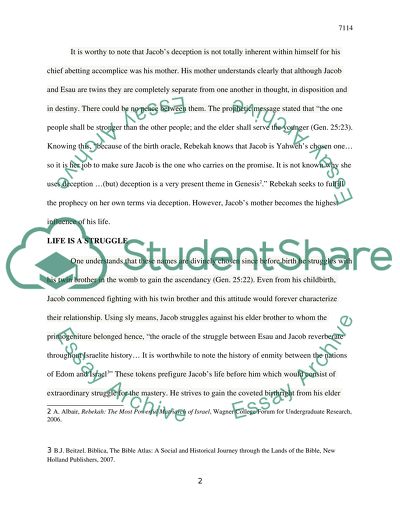Cite this document
(“Theological Analysis: The Role of Jacob in the Book of Genesis Essay”, n.d.)
Theological Analysis: The Role of Jacob in the Book of Genesis Essay. Retrieved from https://studentshare.org/religion-and-theology/1440348-old-testament
Theological Analysis: The Role of Jacob in the Book of Genesis Essay. Retrieved from https://studentshare.org/religion-and-theology/1440348-old-testament
(Theological Analysis: The Role of Jacob in the Book of Genesis Essay)
Theological Analysis: The Role of Jacob in the Book of Genesis Essay. https://studentshare.org/religion-and-theology/1440348-old-testament.
Theological Analysis: The Role of Jacob in the Book of Genesis Essay. https://studentshare.org/religion-and-theology/1440348-old-testament.
“Theological Analysis: The Role of Jacob in the Book of Genesis Essay”, n.d. https://studentshare.org/religion-and-theology/1440348-old-testament.


